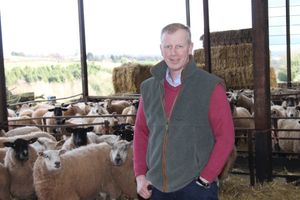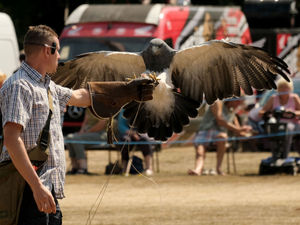Crisis talks being held as farmers continue to feel the heat
Crisis talks are being held as farmers continue to struggle with the ongoing heatwave.
It comes as many farmers are finding it difficult to feed animals and grow crops because of the dry, hot weather.
The National Farmers’ Union (NFU) has opened a “fodder bank”, a free service to members that allows them to access feed and animal bedding, and lets them sell any surplus they have back to the bank, and said it would remain open as long as necessary.
Richard Yates, chairman of the NFU West Midlands Livestock Board, said: "The NFU is aware of the seriousness of the issue and are in discussions with Defra on the matter.
"Every farmer is in the same boat. They are looking to farming representatives to act and talk to the powers at be, and that is what we are doing."

Oliver Cartwright, NFU regional spokesman, said: “Conditions are extremely challenging and the hot weather will have a marked impact on yield and quality across all Shropshire farms.
“The NFU will continue to support its members and its Fodder Bank remains open to help members find animal feed for their farms, or sell any surplus to assist others."
Yesterday, Rural Affairs Secretary Lesley Griffiths agreed to hold crisis talks with farmers at the Royal Welsh Show after calls from farmers' unions.
Both the NFU Cymru and the Farmers' Union of Wales welcomed the summit which aimed to help farmers find solutions to the issues being caused.
John Mercer, director of NFU Cymru, said the dry spell had "caused huge problems for farming communities across Wales and across all sectors".
"As a result of these on farm difficulties we called for a farm summit to try to find solutions through this troubling period," he added.
The prolonged dry weather has followed what was a cold and difficult winter for agriculture, as well as rising costs.
According to figures from the British Hay & Straw Merchants Association, there has been a marked increase in the cost of hay and straw. In May 2017 a big bale of hay cost £52 per tonne – the latest figure is £95 per tonne.
Some varieties of straw also nearly doubled in price over the same period.
The price of cattle at livestock markets has fallen sharply in recent weeks – anecdotally because farmers want fewer mouths to feed and water.




